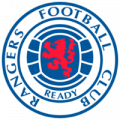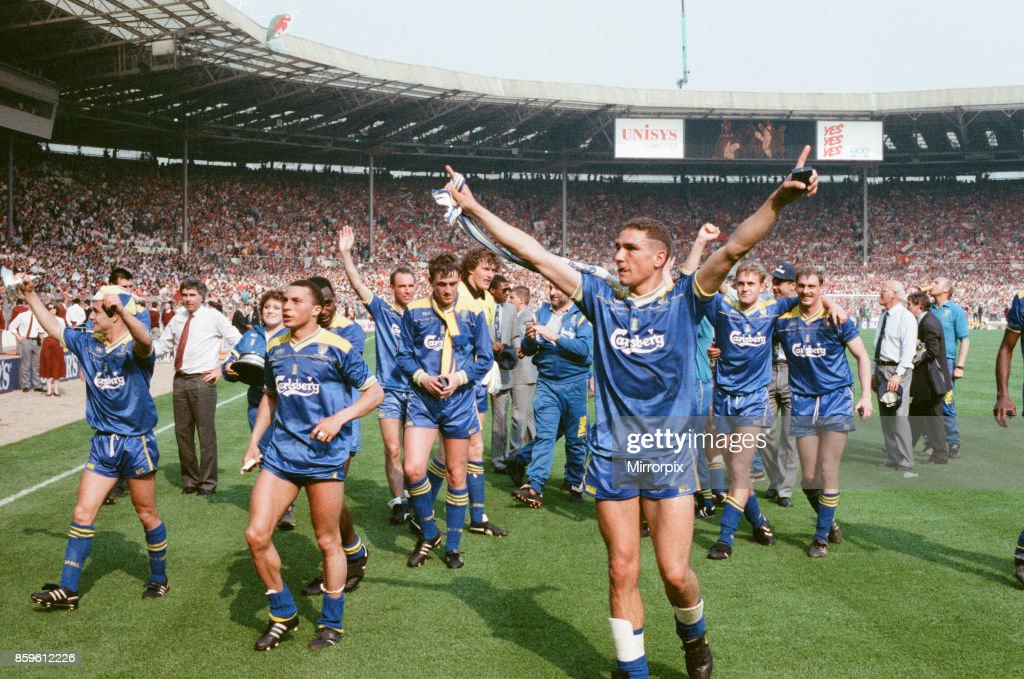While unsightly and at times controversial, Wimbledon's Crazy Gang offered officialdom with a fleapit into pub football at its austere best - but as cynicism masked their destiny, no one could connect the dots to foresee the south Londoner's pending anarchic success.
The Dons had spent much of their time floundering in the lower divisions up until the 1980s. Like everyone around them, they had set their hearts on a quixotic gambit illogical for a club with a scarce fanbase and funds too little to bring in the quality to succeed in the style.
In 1982, David Bassett's team were relegated to the fourth tier of English football, and the start they made in the bowels of the Football League wasn't any more palatable. After just one victory in their opening seven games, the bell pealed again, a final imperative call for reformation.
-
A paradigm shift
At long last, change did come in the same season. Following assiduous evaluation of the team's ticket (or lack thereof) to success, the Stanmore-born manager's decision to cast aside flamboyance for a rough-hewn tactic that honoured result over entertainment lifted the lid on The Dons' sleeping brilliance.
Change towards a more ruthless philosophy was key to the rapid elevation through the divisions and was a pivotal springboard to the club’s success. Route-one football was the order of the day, though believed by many to be obsolete to the demands of the 80s landscape.
"I think the best way to describe it was we were basically like a pub team," Nigel Winterburn explained, a player that served Wimbledon between 1983 and 1987, joined on the adventure by a dressing room that institutionalized the Crazy Gang's kamikaze exuberance.
"We had an amazing team spirit; we scared a lot of teams because we played a long ball style of play and nobody wanted to play us."
Wimbledon had begun playing an incredibly direct method of percentage football, with Bassett demanding that the team had at least 18 shots, 12 corners and 12 long throws each game. Much to the players’ disgust at playing in such an aesthetically graceless fashion, Wimbledon won the Fourth Division with 98 points, the most of any league that year.
The following years would prove disorderly as much as rejoicing. But the dawning of Wimbledon's strive for a brighter future couldn't be better characterised than through the trials and tribulations of Nigel Winterburn's playing career.
-
Setbacks lead to comebacks - the footing of a great Wimbledon team
"We were a team mostly made up of players who had been rejected, but we used to have a fantastic laugh, and nobody cared about us," he said, implying that the ignorance of others, fuelled along the way by their own points to prove, only catapulted their ambitions further.
One of those points to prove was to Birmingham City and Oxford United. Up until he had joined Wimbledon, he had failed to make a single appearance for the two clubs, with a free transfer to SW17 feeling much like the eleventh hour for the left-back.
"It was a fabulous time [playing for Wimbledon] because I had previously been released by Birmingham City."
"So, to get the opportunity to prove myself again was a fantastic feeling and I always held the thoughts of being a 16-year-old kid and being released from Birmingham.
"Nothing will ever feel as bad as that in your life, in terms of football. Standing there as a young kid and being told you're not good enough is all I needed to hold to push myself in my career."
Despite earning youth caps for England, his talent at club level went veiled. It was the same for other players joining The Dons, and it became a recruitment strategy that created a monster.
A pack of lads who all they wanted to do was prove everyone wrong and have fun through it all. A pub team with a mob mentality ready to take on each division as it came.
"That was at Wimbledon, Arsenal and West Ham when times got difficult. I had a lot of good memories in my career and a lot of good times but sometimes you lose a bit of form or come under pressure from different people.
"But all I had to do was look back at what happened to me and that was my biggest incentive."
-
Pub football, on and off the pitch - the madness that enwreathed the crazy gang
When Winterburn spoke of Wimbledon being a "pub team", he was referring to the football they played. The 'hoof ball' tactic was a prosperous passage to the top of the pyramid as Wimbledon secured back-to-back promotions to the Second Division.
And despite being favourites for relegation, they managed to solidify their status in the second tier of English football with a 12th-placed finish in the 1983/84 campaign.
In their climb to the first division, they continued to bolster their physicality with additions to the dressing room who licked their lips at the Crazy Gang expression.
The further Wimbledon moved away from its idealistic playing style, which was attributed to its bygone descent, the more appropriate their 'pub team' label became, not only confined by Plough Lane's pitch.
"We had some big characters in some of the teams I played in at Wimbledon, the likes of John Fashanu, Dennis Wise and Vinnie Jones, there were some big personalities in the dressing room."
"We also had players who in the end went on to make some big money moves, a lot of those players I played with initially got some fantastic transfers later on."
It was these players that would lay down the foundations of the Crazy Gang. Fashanu and Jones in particular would construct the spine and leadership of a squad that would uninvitedly gatecrash Division One come 1986.
They were also among the players who would personify the club's pub culture that embarked on a roadshow to stadiums all across the country.
"We used to stop off on away games at a pub and have a drink on the way back," reflected Winterburn on the character of Wimbledon. "It was just a relaxed feeling; we would meet up and go to the game then get fish and chips on the way back with a couple of pints.
"Management were absolutely fine with it, so it was just crazy the things we were allowed to do as professionals. But it pulled us together and gave us an unbelievable team spirit."
Plough Lane also became a physical manifestation of how much the club were punching above their weight; a small, decrepit stadium with outdated facilities. But like many teams, they used this to their advantage, and not many knew the secrets of the legendary football stadium.
"Anyone that plays at Plough Lane will know that after the game when you go to meet your family and friends, you actually go into a nightclub."
"On a Saturday evening, it used to change into a nightclub, and it was insane to think that. It's ridiculous to think about how we prepared for games, how we travelled and the things that we did."
Though decaying and rickety, Plough Lane was the perfect home for the Crazy Gang. The headquarters for a team that chose to go about their business in a unique, era-defining temperament.
When push comes to shove, they were a pub team, but for every tavern, there's a landlord, and for every country, there's a king. Wimbledon just wanted to have fun, but they perpetrated much more than that.
-
"Nobody believed we could be successful"
VAVEL asked Winterburn for the secrets to Wimbledon's success. His answer wasn't expected to be straightforward, but he lent on the idea of team spirit and individuality for reasoning to The Dons' unexpected ascendancy in the 80s.
He also hailed Dave Bassett, the manager that gave him a chance. "I just think it was the style of play, Dave Bassett was a big character as well who could get the best of the team.
"Not many teams would play British Bulldogs on a Friday before a game. Usually, the team who were picked on the Friday didn't end up playing Saturday because the ones that weren't picked would lay into the players who were playing.
"It was just a unique club, we trained on what was basically an open space. There was a trucker’s café where we would get changed in the back off on the A3 and it's ludicrous to think of how we went about things. That's why I said it felt like being a Saturday or Sunday league team."
The crazy gang may be revered by many as an unpleasant footnote of the footballing culture of the 1980s - but their apodictic mastership to create a philosophy and psyche in the sweat to get results beyond what the club were financially capable of should be applauded.
Perhaps even more commendable was their ability to never change the way they did things and still consistently overachieve. Teams of modernity struggle in the face of opposition that suss out their blueprint, but Wimbledon never had their rulebook detained.
"I know we were in the old third division, but even when we came through to division one, which was the top league at the time, nothing really changed.
"I just don't think people believed what we were doing, and I don't think anyone thought we could be successful by preparing the way we did at times."
"But we scared a lot of teams, we had a style of play, and we stuck to it. Other teams couldn't cope with it, but people also forget that we had a lot of good footballers as well."
Unfortunately, it was a compound of self-implosion and new chairman Charles Koppel's decision to take the club from South London and rebrand it in Milton Keynes that would effectuate Wimbledon Football Club's death.
But before the crazy gang would turn to chaos, Winterburn would leave the club after he won the Wimbledon supporter's Player Of The Year in each of the four seasons he spent at Plough Lane.
The move came about as Arsenal paid £350,000 for Winterburn to relocate to Highbury. unknowingly, it came on the cusp of the club's finest achievement as they became the first pub team to win the country's most-prized competition.
Winterburn knew he was leaving a talented team, but nobody envisioned they'd ever come out on top in a game of the same gravity as an FA Cup final. It was a victory over Kenny Dalglish's Liverpool that ascertained cohesion takes priority over individualism.
The characteristics of Wimbledon Football Club in the 80s complemented each other, each detail of the club slotting and convening together to build a collective which every team in Britain dreaded playing.
An undersized fanbase allowed the team to play unflattering football without recoil from the stands; the lack of funds illogically led to a pragmatic roadmap to success, and the team ethos synthesised and embodied the direct and aggressive style of play. It all combined and created a highly formidable entity.
Though Wimbledon may never be the same again, and the current team that calls Plough Lane home hasn't rumbled the seams of football the same way Dave Bassett's crazy gang did, the 1988 FA Cup will always persist a pub-crawler's fairytale, and Nigel Winterburn's involvement in the road to enigmatic glory remains irrefutable.









































